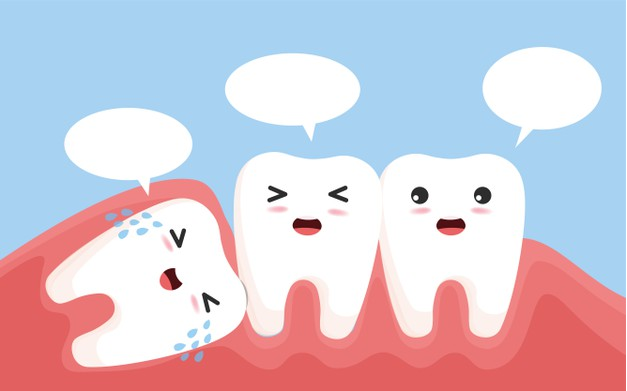All You Need to Know About Safe Wisdom Tooth Removal
Wisdom teeth, the last four of the ideal set of 32 teeth, have lost usability relevance as humans evolved with changing food habits. These molars usually grow when you are between 17 and 21 years of age or older. Wisdom teeth, just like the appendix, are more like a vestigial organ, and you will function normally, with or without it. The jawline of the modern human is getting shorter, so your jaw might not have enough room to accommodate molars, thus causing infection and pain along with disturbing the normal alignment of other teeth. If you are facing any difficulty related to wisdom teeth, it is not safe to ignore it for longer as it could cause several other problems related to dental structure and oral hygiene.

Over 10 million people go for wisdom tooth removal in the US alone, so you are not alone suffering from the challenges of unwanted wisdom teeth. However, you should be very cautious while searching for an experienced dental surgeon, as imperfection could worsen the situation resulting in a long and painful recovery process. Tooth extraction, especially wisdom tooth extraction, requires meticulous handling, so your dental surgeon must have vast experience in extracting wisdom teeth using the latest dental technologies.
Is it Time to Remove Wisdom Teeth?
The wisdom teeth related challenges crop up only when your jaws don’t have enough to permit natural growth. The hindrance could be due to multiple factors, but this could trigger severe pain, infection, and in the long run misalignment of neighboring teeth. You will come to know about wisdom teeth issues only when you will notice gum swelling, mild pain, or infection. If you experience any unwanted development round last molars, you should keep these points in mind:
- Antibiotics help in controlling infection, but it is temporary, and the problem might resurface within a few days.
- Postponing extraction of wisdom teeth could make extraction more painful, so it is better to get it extracted as early as possible based on preliminary examination followed by an x-ray study.
- The dental structure is highly complex and interconnected, so ask for all possible tests to determine extraction of the right tooth to allow natural spacing.
- It is best to have a panoramic x-ray to have a better picture of dental structure for painless removal.
- Discuss your other ailments with the surgeon so that he could recommend either local or general anesthesia.
- The beauty of your dental crown is in perfect spacing, so it is better to get wisdom teeth removed early to avoid crowding and misaligned teeth issues.
Why is it Necessary to Extract Wisdom Teeth Early?
Wisdom teeth become a challenge only when your jaws don’t have enough space to allow the natural growth of the third molars. The space crunch could push the tooth to grow at an odd angle. This irregular or partial growth is called impacted wisdom teeth, which might need surgical intervention to extract the wisdom tooth. If you are facing any of these complications, you should immediately consult a dental surgeon near you to get wisdom teeth examined and removed before it is too late:
Dental Caries: The last molars are very difficult to clean, which in the long run accumulate plaque. The erosion of the crown could cause cavities, thus impacting the surrounding teeth.
Gingivitis: Toxins released by bacterial growth cause infection. It affects gum, resulting in gum disease, called gingivitis. If you are experiencing swelling, bleeding, or mild pain in the gums, then you should consult your dentist to know about the exact reason.
Pericoronitis: It is a partial eruption of gum tissue around wisdom teeth caused by inflammation. If the infection is deep, it might cause mild fever and pain. Although the immediate cause could be anything, ultimately, you might have to get your wisdom teeth removed to get rid of the recurring inflammation problem.
Wisdom Teeth Removal Procedures
Getting rid of unbearable pain might be your top priority, but ignoring wisdom teeth related problems is not a smart move. It is better to consult a qualified dental surgeon and ask him to examine wisdom teeth using panoramic x-ray to evaluate nerve structure and teeth condition. An experienced dentist will discuss the complexity of your wisdom teeth in detail and suggest suitable extraction procedures along with a recovery path.
Before extraction, the dentist will recommend maintaining the highest possible oral hygiene and some anti-inflammation medication to reduce swelling. One suitable condition is achieved; your dentist will first clean the oral space using advanced dental cleaning procedures to make the area bacteria free.
Wisdom Teeth Removal Surgery
Depending on your comfort and history, the dentist will give medication to make you sleepy so that realization of the main could be minimal. If the procedure requires, your dental surgeon might use anesthesia to make the area numb. Once you are comfortable, the dental surgeon will make a small incision in the gum and remove the tooth bone to reach the root. To make it easier to extract, the tooth might be broken into small pieces. You should follow all possible instructions as told by the anesthesiologist.
In normal wisdom teeth extraction surgery, it takes on average just a few minutes, excluding the time it takes anesthesia to come into action. If the dental structure is complex, it might take a little longer. Post-surgery you have to follow some medication to avoid infection and support quick painless recovery.
